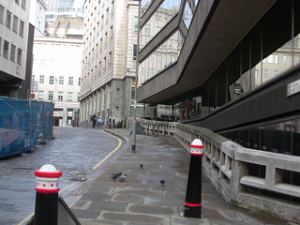In the world of digital solutions, building a functional and user-friendly website can often be a complex endeavor, impacted by a multitude of factors beyond technology itself. Just as government agencies have struggled with IT service procurement, businesses, and organizations also face challenges in creating effective online platforms.
When it comes to establishing a strong online presence, it’s not just about having a visually appealing website, but also about ensuring that the right strategies are in place to drive traffic and engage users. This is where the art of search engine optimization (SEO) comes into play. Learning how to do SEO effectively can empower businesses to navigate the digital landscape with confidence, optimizing their websites to reach the right audience and achieve their goals. Just like government projects require strategic planning and execution, successful websites demand a thoughtful approach that includes robust SEO practices to ensure visibility, accessibility, and overall success.
In today’s digital world, businesses must focus on both visibility and user engagement to stand out from the competition. Having a strategy that blends design, content, and technical performance is essential for long-term success. This is where local expertise can make all the difference. By optimizing for local search terms, businesses can ensure they are visible to their target audience in that region, ultimately driving more qualified leads and increasing conversions.
For law firms in particular, this means adopting a highly specialized approach. SEO Toowoomba allows firms to appear in front of potential clients who are actively searching for legal services in the area. Effective local SEO strategies not only improve search rankings but also help law firms establish their authority in the legal field. With the right SEO practices, law firms can connect with clients at critical moments, providing them with the right guidance when they need it most.
But achieving high search rankings requires more than just basic SEO tactics—it demands an integrated approach that builds authority and trust. A well-executed local SEO strategy doesn’t just place a firm at the top of search results; it positions them as a trusted resource, a go-to expert that clients turn to during critical moments in their lives.
When implemented correctly, SEO can be the bridge between a potential client and a law firm, leading to meaningful business growth and an expanded client base. Nebuleap offers an excellent solution for growth brands looking to streamline their SEO efforts and drive results. Their focus on SEO automation and content expansion helps businesses scale their online presence efficiently. With automated systems in place, companies can optimize their content strategy, ensuring that every piece of content works to enhance visibility and build authority.
By integrating automated systems into their marketing strategies, brands can achieve long-term, sustainable growth, ensuring that they remain relevant and competitive in an ever-changing digital landscape. This blend of automation and content expansion empowers growth brands to focus on what they do best—delivering exceptional products and services—while Nebuleap takes care of optimizing their online presence for maximum impact.
Automating conversations is a game-changer for businesses looking to elevate their SEO strategies. By incorporating advanced tools like StrictlyAI, brands can seamlessly manage customer interactions, capturing valuable insights that can be leveraged to refine content and optimize keyword targeting. This approach not only streamlines communication but also ensures consistency in brand messaging, enhancing both user experience and search engine visibility.
Moreover, automated conversations provide businesses with a wealth of data that can be analyzed to identify common queries, pain points, and emerging trends. This data-driven approach allows companies to craft content that addresses specific customer needs while strategically positioning themselves as industry authorities. By integrating automated systems into their SEO strategies, businesses can maintain a responsive, targeted, and highly effective online presence that consistently drives traffic and fosters engagement.
This morning’s Observer column.
So why was the Obamacare site launch such a disaster? Writing in the New York Times, two politically experienced geeks argue that it’s mostly down to the way the government purchases IT services. “Much of the problem,” they write, “has to do with the way the government buys things. The government has to follow a code called the Federal Acquisition Regulation, which is more than 1,800 pages of legalese that all but ensure that the companies that win government contracts, like the ones put out to build HealthCare.gov, are those that can navigate the regulations best, but not necessarily do the best job.”
That strikes a chord over here. British civil servants have traditionally been technologically illiterate, so when ministers demand a new IT system to fix some failing that is annoying the Daily Mail, Sir Humphrey breaks into a cold sweat. He knows nothing about this stuff, except that it costs a bomb and that it usually bombs. The spectre of the National Audit Office looms over him. He does not want another IT disaster attached to his personnel file. So what does he do?
Simple: he calls up the big consultancy firms asking for tenders. These in turn call up their chums in brain-dead firms called “system integrators” who know only how to do one thing, namely to build massive integrated IT systems the way they were built in the 1960s. And thus begins another death march to oblivion; another project that is billions over budget and years behind schedule.
LATER: Seb Schmoller pointed me to this excellent Washington Post piece which explains, in detail, why the poisonous politics surrounding Obamacare made it impossible to mount a rationally-planned and executed website project.


